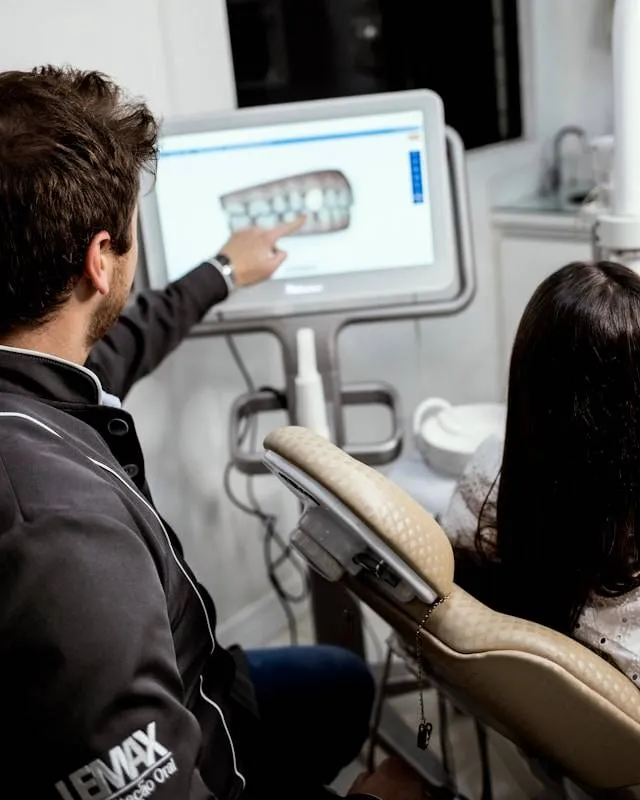
-
Monday - Saturday: 8am - 12pm ; 2pm - 8pm
Sunday: 8am - 12pm - Make an appointment
- [email protected] Contact us

Monday - Saturday: 8am - 12pm ; 2pm - 8pm
Sunday: 8am - 12pm
Traditional implants are large enough to be the “gold standard” for replacing missing teeth, but they are not suitable for everyone. They are expensive, especially when multiple implants are needed. In some cases, mini implants are a good alternative. Mini implants are smaller and cheaper than traditional implants, and the procedure is simpler and less invasive.
Mini Implants are made of high-grade titanium alloy like traditional implants but have a smaller diameter and narrow body.
After natural tooth extraction, the jawbone loses its thickness due to bone loss. The jawbone can also deteriorate with age or osteoporosis. If you are not healthy enough to undergo bone grafting, Mini Implants are the optimal choice for those who do not have enough bone for traditional implants . Unlike traditional implants, Mini Implants are shaped like a screw that can be inserted into the jawbone through the gum tissue. The implant surgeon does not need to flip the gum flap or stitch the wound, so the healing process will be faster.
Mini implants are a good solution, but they do have some limitations. Mini implants do not provide the same level of stability and longevity as traditional implants. Traditional implants are more stable when inserted into the jawbone. For this reason, mini implants are often used to help stabilize removable dentures.
Using Mini Implants to help stabilize loose dentures requires at least 4 Mini Implants to be placed in the lower jaw, while up to 10 Mini Implants are needed to increase stability in the upper jaw. Mini Implants can also replace small teeth, such as lower incisors, or replace teeth in narrow areas where traditional implants are too large.
Mini Implant diameters range from 0.07 to 0.11 inches (1.8 to 2.9 mm). Mini Implant lengths are 10, 13, 15, and 18 mm. This variety of lengths allows the implant surgeon to select the Mini Implant that best fits the size and shape of the jawbone. The overall strength of a Mini Implant is determined by its length, not its diameter.

This is the main difference between the two implant methods as the traditional implant is 4-5mm in diameter and consists of the implant and a separate connecting post. In contrast, the Mini Implant is less than 3mm in diameter and is a solid block.
Mini implants are smaller so they are ideal for replacing small teeth in areas with limited space and increasing retention for full or partial dentures.
Both implants are made from a high-grade titanium alloy and tests have shown that implant strength depends on their length, not their diameter. Although Mini Implants are narrower than traditional Implants, the Implant length is still comparable to that of conventional Implants.
However, some implantologists believe that Mini Implants are less able to withstand chewing forces than traditional Implants. For this reason, traditional Implants tend to be used to restore molars.
With the traditional implant method, the implant surgeon must lift the gum flap and expose the bone to insert the implant. A small hole will be drilled to place the implant. The gum will be sutured closed immediately after the implant is placed in the jawbone. The implant will then be left in the bone to heal for a few months before the tooth is restored. Phase 2 will expose the implant to complete the tooth above the implant.
Mini implants can be inserted directly through the gum without a gum flap, so there is no need to cut or suture the gum. Since the implant is a single piece, there is no need for a second stage like with traditional implants. Mini implants also reduce the need for bone grafting and the process is faster, less invasive and heals faster.
Traditional implants have been widely used for many years and continue to be studied. A properly placed and well-maintained implant has a very high success rate and can last for decades or even a lifetime. Mini implants are a recent breakthrough and several studies have been conducted on their success. The advantages and success rates of Mini Implants are becoming more widely recognized.
Mini Implant placement is performed within 1-2 hours under local anesthesia. The mini implant procedure is completely different from the traditional implant procedure. Mini Implants can be placed and removable dentures can be fitted within the same day.

1. Our websites and newsletters are not intended to replace the services of a physician and do not constitute a doctor-patient relationship. They are for informational purposes only and are not a substitute for professional advice. Please do not use the information
2. The Vietnamese version is the main version, which has reference value. We have tried our best to make the other versions (English, Japanese, Korean) as good as possible. However, there are still errors, especially in foreign languages. We hope that readers will inform us of such errors via the contact form or at [email protected] . We thank you for your valuable help.
© 2025, Sakura Dental Clinic . All Rights Reserved.